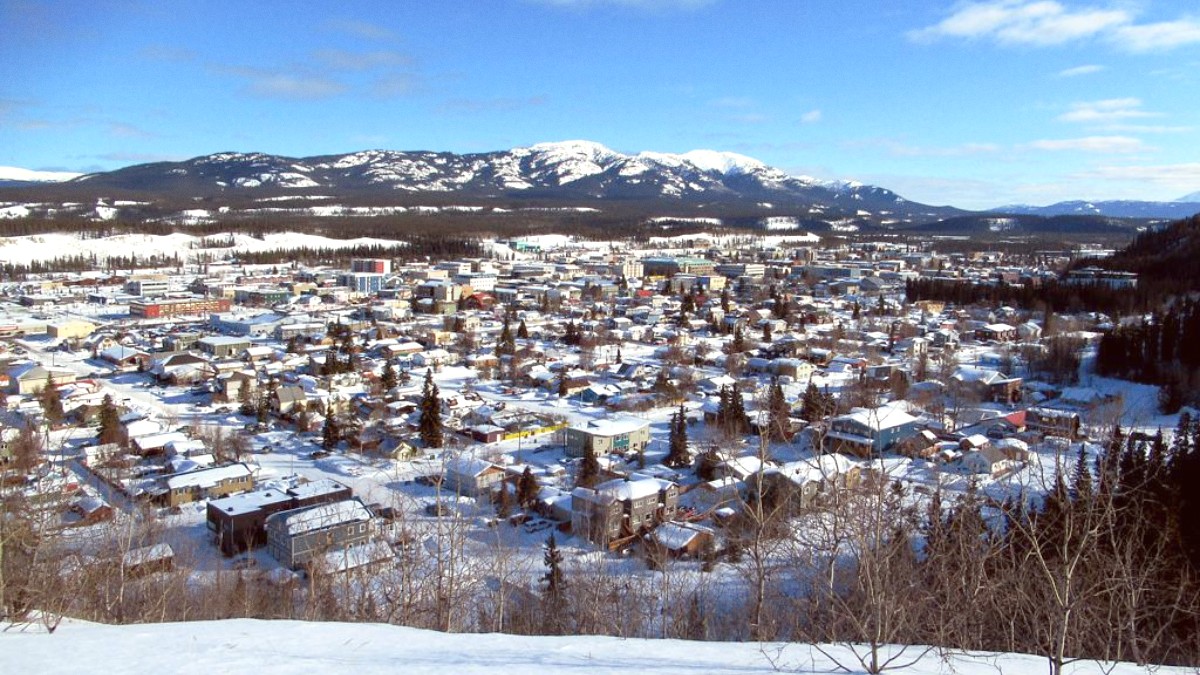
Yukon Territory, Canada
Winter (November - March): Expect cold and dry conditions. Temperatures typically range from -20°C to -40°C (-4°F to -40°F), with even lower extremes possible. Daylight hours are very short, especially around the winter solstice in December. A pristine, white landscape dominates, with consistent snowfall. This period is the best for viewing the Northern Lights due to the extended darkness.
Spring (April - May): This period marks a transition. Temperatures rise, generally from 0°C to 10°C (32°F to 50°F). Snowmelt occurs, which can lead to muddy conditions on some trails and unpaved roads. Daylight hours begin to lengthen noticeably, and the landscape starts to emerge from winter's grip.
Winter travel demands careful preparation for extreme cold. Always dress in layers and cover all exposed skin to prevent frostbite. Pay attention to wind chill warnings. Summer travel means mosquitoes and black flies. These insects appear especially near standing water or in forested areas. Pack and use insect repellent. Wildfire season can affect summer travel. Smoke haze reduces air quality and visibility. Check local fire bans and conditions.
Your main interests determine your travel time. For aurora viewing, choose winter. For outdoor summer adventures, aim for July or August.
Cold temperatures prevail. Short daylight hours limit some activities. Some businesses may close.
Best chances for Northern Lights (December-March). Ideal for dog sledding, snowmobiling, ice fishing. Minimal tourists. Lowest prices.
Extreme cold. Specialized gear needed. Limited daylight for non-winter outdoor pursuits.
Variable weather conditions.
Fewer crowds. Potential for lower prices. September brings stunning fall colors. Good Northern Lights chances in Sep/Oct. May presents spring wildlife viewing.
Some seasonal tours may operate reduced hours or close. Trails can be muddy in spring.
Higher prices for travel and accommodation. More crowds at popular sites. Mosquitoes can be present.
Warmest weather. Maximum daylight for outdoor adventures. All attractions and tours fully operate. Ideal for hiking, paddling, camping, wildlife viewing.
Higher prices. More crowds. Mosquitoes can be prevalent, especially near water.
Late August to mid-April presents the optimal window. Dark, clear nights are necessary. Peak viewing typically occurs from December to March when nights are longest.
Hiking, paddling, and camping experiences are best from June to August. Wildlife viewing excels in May for spring migration and newborns. September offers active animals before winter and complements fall colors.
Reliable snow conditions from December to March.
Best enjoyed with ample snow cover, typically December through March.
Ice conditions are safe from December to March.
Enjoy trails adapted for winter cycling, usually December to March.
Good snow depths make this activity ideal from December to March.
Entry rules vary based on your nationality and arrival method.
Citizens of many countries do not need a visa for tourist stays up to six months. This list includes U.S. Citizens, most Western European citizens, Australians, and New Zealanders. An Electronic Travel Authorization (eTA) is necessary for most visa-exempt travelers arriving by air. U.S. Citizens are an exception; they do not need an eTA when flying to Canada. Apply for the eTA online through the official Government of Canada website. This process is straightforward. The eTA costs CAD $7 and remains valid for up to five years, or until your passport expires, whichever comes first. Apply for your eTA before booking your flight.
Citizens of countries not on the visa-exempt list must apply for a Temporary Resident Visa (TRV). Obtain this visa through a Canadian embassy, high commission, or consulate in your country of residence before you travel. The application process includes submitting forms, providing supporting documents, and potentially undergoing biometrics collection. Begin this process well in advance of your planned departure date, as processing times vary.
For standard tourism in Whitehorse or most of the Yukon Territory, no special permits are generally necessary. Your standard travel documents suffice for general exploration.
Specific activities like hunting or fishing require appropriate licenses. Secure these beforehand. Research specific requirements for specialized activities or remote destinations.
Apply for your eTA online via the IVisa or VisaHQ platforms well before travel.
Ensure your passport remains valid for at least six months beyond your planned departure.
Canada has no specific health entry rules; maintain general international travel health standards.
Complete an accurate declaration for all goods brought into the country.
Have a confirmed return or onward ticket available for inspection.
Prices vary based on your travel style and season.
Accommodation: $60 - $100 (Hostel bed, basic motel, camping)
$40 - $70 (Groceries, fast food, casual eatery)
Accommodation: $150 - $250 (Mid-range hotel, B&B, cabin)
$80 - $150 (Restaurant meals, some nicer dining)
Accommodation: $300+ (Upscale hotel, lodge, premium rental)
$160+ (Fine dining, extensive restaurant meals)
These price ranges serve as a general guide. Prices fluctuate with seasonality.